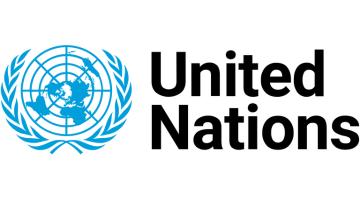German Chancellor Olaf Scholz and Serbian President Aleksandar Vucic at a press conference after their meeting in Belgrade, Serbia in June 2022. Photo: EPA-EFE/MARKO DJOKOVIC
Since the launch of its military operation in Ukraine, Russia has become one of the most sanctioned countries in the world. This sanctions campaign, driven by the U.S. and E.U., not only focuses on targeting Russia directly but also pressures other states to implement their own sanctions or sever economic ties. Serbia, a historic close ally of Russia, is a recent victim of this increasing imperialist coercion.
Not a single day passes without seeing the European Parliament and the neoconservative war hawks in the mainstream media glorifying the sanctions imposed on Russia, while regurgitating nonsensical mantras that Russia’s army is hoarding soviet-era washing machines and freezers to use their semiconductors for its supposedly waning military hardware. Yet, despite European Commission President, Ursula Von Der Leyen’s claims that Russia was strategically weakened by the Western-imposed sanctions, the newly appointed head of NATO, Mark Rutte, has actually admitted the failure of those sanctions. We argue that we must see this discussion around sanctions as not only about cognitive warfare and propaganda (which has been added to NATO’s overall strategy since April 2023 and the BBC admitted to losing this battle of hearts and minds). It is about how the West’s use of sanctions against Russia (to prevent any entangling of independent economies with Russia’s industries and businesses) is really an imperialist process of capital accumulation through sanctions.
Since the intensification of hostilities between Russia and Ukraine in 2022, Western nations have imposed 15 rounds of sanctions against Russia. These sanctions against Serbia made it extremely vulnerable. Croatia, Serbia’s neighbor, halted transport of Russian oil through the Omišaj oil terminal, leaving Serbia more reliant on Russian energy from TurkStream. The most recent round of sanctions, however, specifically targets Serbia’s ties with Russia, one of the last two countries in Europe (besides Belarus) to not partake in the sanction gymnastics against Russia. This time, one of the targets is Serbia’s Naftna industrija Srbije (NIS) [Petroleum Industry of Serbia] whose 56% of its shares are owned by two Russian companies – Gazprom Neft and Gazprom – , roughly 30% owned by the Serbian state, and the rest is various minor shareholders. Given that Russia owns a majority stake in the company, the proliferating sanctions are directly affecting Serbia. Serbia is being forcibly put between a rock and hard place as it has to grapple with how to satisfy its energy needs while keeping whatever diplomatically sovereign decision making it can forge. This is part of a cycle of coercive diplomacy against Serbia to force it to break from its historic ally (Russia) and become more pro-west.
Serbians’ Anti-West Stance
Mainstream media often claims that Serbs are religious ethnonationalist who are blindly siding with Russia because of the shared Eastern Orthodox heritage. While a big majority of Serbs share that heritage, purely religious analysis only feeds sectarianism and obfuscates anti-imperialist analysis. According to one poll, Serbian people have 41% negative attitude towards EU (29% positive), 51% negative attitude towards the US (21% positive), and 74% negative attitude toward NATO (7% positive). No amount of religiosity can produce such anti-imperialist figures. It is the experience of Serbians – with demonization in the form of phobia, starvation, and deindustrialization via sanctions, as well as occupation of its sovereign territory by the means of direct military intervention – that are the primary causes of this anti-West sentiment.
Serbia, when it was part of Yugoslavia, was heavily bombed by NATO following an intense funding and arming campaign of right-wing secessionists who sought to breakaway from Belgrade (capital of Yugoslavia), which led to a decade of infighting and expanded presence of NATO in the western Balkans. A bombing that was propagandistically presented as purely a humanitarian intervention. That bombing campaign did not just attack military targets. In fact, the country’s economic capacity was initially destroyed through sanctions (which Gregory Elich details here) that were followed by an unprecedented bombing campaign with the objective to “demolish, destroy, devastate, degrade, and ultimately eliminate the essential infrastructure of [Yugoslavia]”. This destruction included the bombing of People’s Republic of China’s embassy in Belgrade and many oil refineries that Yugoslavia built decades earlier. Following the forceful disintegration of Yugoslavia and disaster capitalism unleashing its tentacles to accumulate through neoliberalizing and privatizing the public sector, Serbia’s oil industry was degraded. The process of forcing Yugoslavia to submission was backed up with a heavy propaganda campaign to vilify Serbs collectively in order to justify the destruction of the developed infrastructure and counteract any public reaction that could become an obstacle, such as solidarity and anti-war movement.
Serbia was seeking foreign investments to fix its destroyed oil industry, and so it decided to sell shares of what used to be a fully publicly owned company (NIS) to a partner that did not participate in the bombing campaign, Russia (Gazprom Neft), in 2008. Serbia, therefore, made an agreement with their Russian counterpart who provides the country with stable and relatively cheap energy resources and services. Russia took the strategic opportunity to continue with the currently-under-construction SouthStream (Russia, Bulgaria, Black Sea, Serbia, Hungary) and the completed TurkStream (Türkiye, Bulgaria, Serbia, Hungary) pipelines. (Russia’s partnership with Serbia also serves Türkiye’s interest in becoming an energy hub –hence, its expansionist existence in Libya’s waters and the redrawing of maritime borders in the Mediterranean).
Imperialist Terrorism and Accumulation Through Sanctions
We know the lengths the “U.S./EU/NATO Axis of Domination” can take to implement its terrorist activities to maintain its hegemony and force countries to be integrated into the imperialist core under subordinated conditions. Consider the bombing of the NordStream pipeline which was presumably done by the U.S. or its agents and how Europe/NATO refuses to open an honest and transparent investigation. Meanwhile, NATO member countries are forced to buy expensive U.S. energy. Serbia’s NIS is facing the same fate now, where the company is under the threat of sanctions unless it changes the structure of the ownership and removes any traces of anything Russian. The sanctions have already been enrolled pending complete implementation, such that now international bank card users (SWIFT) cannot use their cards to pay at gas stations in Serbia. The Nikola Tesla Airport in Belgrade, which relies on NIS fueling services, will predictably face an increase in prices as other European airlines will fill their jet tanks at other destinations. Ultimately, these sanctions will hurt regular Serbian consumers and not the imperialists.
The fate of the NIS company remains unclear: Will it be aggressively nationalized and lead to a break in relations between Russia and Serbia? Or will Serbia purchase Russia’s share, which requires a buyout of more than 3 billion USD? Will we see Gulf money infiltrate the country like it did with the lithium project and finance the buying of the shares and delivering them on a golden plate for ExxonMobil or Shell to acquire NIS? Given that the US and the elusive, chameleon-like nature of Serbia’s current leadership have signed the Strategic Dialogue Agreement, which entails security and energy cooperation, will the US seize this opportunity and accumulate NIS through imperialist sanctions, similar to what it did with Venezuela’s CITGO?
This is just another episode in the series of imperialist terrorism. If a country is independent and forging its own national and foreign policy, then its sovereignty must be undermined. First, through propaganda and demonization, which justifies the second, sanctions and coercive economic measures. This often leads to the militaristic form of imperialist terrorism that destroys lives and de-develops countries, only for them to be bought off with the price of pittances by the imperialists. Serbia experienced all of this over the span of the last 30 years. But the war criminals are knocking on Serbia’s doors again. This time they target Serbia’s livelihood and energy security with the goal of causing a strategic defeat of Russia. However, one has to bear in mind that the red lines of the Serbian government towards Russia on the one hand, and the collective West on the other, are reflection not of the desires and objectives of Serbian elites, but of the resentment of Serbian people towards imperialist policies that led to its humiliation and the destruction of the society that give them pride and emancipation.
Nemanja Lukić is a Yugoslav anti-imperialist activist based in Spain. He currently runs Anti-Imperialist Network portal dedicated to the theory of imperialism and anti-imperialism.



















